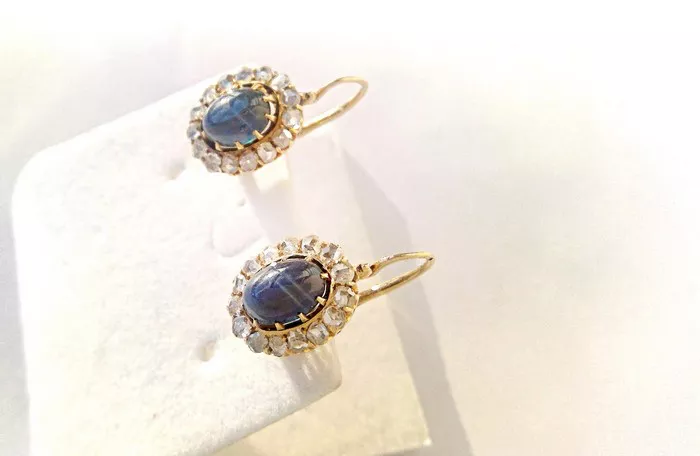Earrings are a timeless accessory, often worn to complement outfits and express personal style. However, for individuals with sensitive ears, finding the right pair of earrings can be challenging. Allergic reactions to certain metals are common, leading to discomfort and irritation. Understanding the properties of different metals and their effects on sensitive ears is crucial for selecting earrings that are both stylish and safe.
Explanation of Common Allergens
Nickel and cobalt are two of the most common metals known to cause allergic reactions in individuals with sensitive ears. Nickel, in particular, is widely used in jewelry production due to its affordability and malleability. However, it is also a common allergen, with up to 15% of the population experiencing nickel sensitivity. When nickel comes into contact with the skin, it can trigger a range of symptoms, including redness, itching, swelling, and blistering.
Cobalt, although less prevalent in jewelry compared to nickel, can also cause allergic reactions in some individuals. It is often used as an alloy in white gold jewelry, making it a potential source of irritation for those with cobalt sensitivity.
The reason these metals are problematic for sensitive ears lies in their ability to release ions when in contact with sweat or moisture from the skin. This process, known as metal ion release, can trigger an immune response in susceptible individuals, leading to allergic symptoms.
List of Safe Metals
For individuals with sensitive ears, choosing earrings made from hypoallergenic metals is essential. These metals are less likely to cause allergic reactions due to their inert nature and lack of common allergens such as nickel and cobalt. Some of the safest metals for sensitive ears include:
1. Titanium: Known for its biocompatibility and hypoallergenic properties, titanium is an excellent choice for earrings. It is lightweight, durable, and resistant to corrosion, making it ideal for everyday wear.
2. Niobium: Like titanium, niobium is a hypoallergenic metal that is highly resistant to corrosion and oxidation. It is often used in medical implants due to its biocompatibility and has gained popularity in jewelry for its safety and versatility.
3. Platinum: Considered one of the purest precious metals, platinum is hypoallergenic and rarely causes allergic reactions. It is also highly durable and maintains its luster over time, making it a valuable investment for earrings.
4. Gold (specific grades): While pure gold (24 karat) is hypoallergenic, it is too soft for everyday jewelry. However, certain grades of gold, such as 18 karat or higher, are less likely to contain nickel and other allergens, making them suitable for sensitive ears.
5. Surgical stainless steel (specific grades): High-quality surgical stainless steel, such as 316L or 316LVM, is often used in medical implants and is considered safe for earrings. It is durable, corrosion-resistant, and less likely to cause allergic reactions.
Benefits of Hypoallergenic Metals
Hypoallergenic metals offer several benefits for individuals with sensitive ears:
1. Biocompatibility: Hypoallergenic metals are well-tolerated by the body, reducing the risk of allergic reactions and irritation.
2. Durability: Metals like titanium, niobium, and platinum are highly durable and resistant to tarnishing, ensuring longevity and continued comfort for the wearer.
3. Versatility: Hypoallergenic metals come in a variety of styles and finishes, allowing individuals to choose earrings that suit their personal taste and preferences.
4. Peace of mind: By opting for earrings made from hypoallergenic metals, individuals with sensitive ears can enjoy wearing jewelry without worrying about adverse reactions.
Quality Marks and Certifications
When purchasing earrings, look for quality marks, certifications, or standards that indicate the metal’s safety and purity. In the European Union, the Nickel Directive regulates the use of nickel in jewelry to minimize allergic reactions. Products that comply with this directive are labeled as “nickel-free” or “hypoallergenic.” Similarly, California’s Metal-Containing Jewelry Law sets limits on the amount of lead, cadmium, and other toxic metals allowed in jewelry sold in the state.
Additionally, reputable jewelry manufacturers may voluntarily obtain certifications such as ISO 9001 (Quality Management System) or ISO 13485 (Quality Management System for Medical Devices) to demonstrate their commitment to producing safe and high-quality earrings.
Care Instructions
To maintain the hypoallergenic properties of earrings made from safe metals, it is important to follow proper care instructions:
1. Avoid exposure to harsh chemicals: Remove earrings before swimming in chlorinated pools or using cleaning products containing ammonia or bleach, as these can damage the metal and irritate the skin.
2. Clean regularly: Wipe earrings with a soft cloth after each wear to remove dirt, oil, and sweat. For deeper cleaning, use a mild soap and warm water solution, then pat dry with a clean towel.
3. Store properly: Store earrings in a dry, air-tight container to prevent tarnishing and exposure to moisture. Avoid storing them in direct sunlight or humid environments.
4. Check for wear and tear: Periodically inspect earrings for any signs of damage, such as loose stones or worn clasps. Repair or replace damaged earrings to prevent irritation and ensure continued comfort.
Recommendations
When shopping for hypoallergenic earrings, consider purchasing from reputable brands or stores that specialize in sensitive skin jewelry. Look for brands that prioritize quality and safety, and offer a wide selection of hypoallergenic metals and styles. Some popular brands known for their hypoallergenic earrings include Blomdahl, Tini Lux, and Sensitively Yours.
In conclusion, selecting the safest metal for earrings is essential for individuals with sensitive ears to avoid allergic reactions and irritation. By choosing earrings made from hypoallergenic metals such as titanium, niobium, platinum, and certain grades of gold and surgical steel, individuals can enjoy wearing jewelry without compromising comfort or style. Remember to follow proper care instructions and look for quality marks or certifications to ensure the earrings meet safety standards. With careful consideration and attention to detail, finding the perfect pair of hypoallergenic earrings is within reach for everyone.

